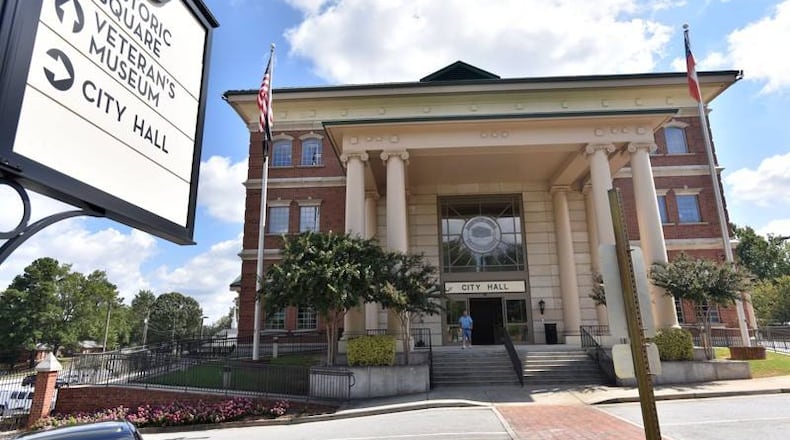The city of Lawrenceville recently placed a six-month moratorium on new development and building permit applications in a six-block area of downtown, while consults study the hodge-podge of existing zoning and make suggestions for changes to accommodate future development.
The area is a mix of residential, commercial and RM-12 properties such as duplexes.
Residents voiced concern and frustration at a recent council meeting, saying the moratorium prevents them from performing home renovations.
Lawrenceville City Manager Chuck Warbington said the city doesn’t currently plan on buying any homes, but acknowledged that “everything’s on the table.”
The study, Warbington said, is to “fix current zoning and to put a vision out to what could be.”
“We just needed to hit the pause button to take a step back to analyze that area and determine what the next steps could be,” Warbington said.
At a council meeting, residents piled into council chambers to voice their frustrations about the moratorium.
Barbara Brown, a West Oak Street homeowner, told council that the city has bought at least two properties on her block.
“I’m curious as to why that is,” she said. “I’d like there to be more clarity about what is this big picture.”
Linda Nash, lives in Grayson but owns property in Lawrenceville on the corner of Oak and North Chestnut Street. She asked council to clarify the city’s plan and urged them to think about the affect on residents.
“Although some property owners might resist any future development, I doubt that any of them would appreciate any move that potentially devalues their properties,” Nash said to the council.
She also expressed frustration about residents not being given prior notice of the moratorium.
In January, city council denied a mixed-use development plan in which a building would have been located in the study area. Johnathan Chae, the property developer, planned a three-story development including retail, office space and residences on the top floor.
Chae said had been working on the development proposal for several months before presenting it to the city council earlier this year, even meeting individually with three council members. Chae said his team made changes to the plan based on feedback from the council members.
“They seemed to be for it,” he said, calling the unanimous vote against his project unexpected.
Lawrenceville mayor David Still told Chae at the meeting that his project was denied because was too large for the piece of land and it did not fit the character for the neighborhood. Chae, however, told The Atlanta Journal-Constitution that the planning and development commission motioned to approve the property because it fit within the city’s master plan.
Chae was so confident that his project would be approved that he said he wrote contracts offering to buy homes in the area.
Chae said that the moratorium was passed after council members found out that he was in contract negotiations with some of the residents.
Warbington said from a zoning standpoint the property could have been possible, but it didn’t fit the city’s plans.
“My understanding was the development didn’t fit the character of the neighborhood, and it was too dense for that area,” he said.
Warbington said a possible result of the study is recommended zoning changes.
“If there is residential house there and it is currently zoned commercial, one of the options more than likely from the consultant is going to be you need to rezone that to residential to clean up that zoning,” Warbington said. “We have people living in houses that are zoned commercial, which is a non-conforming use.”
About the Author
Keep Reading
The Latest
Featured




